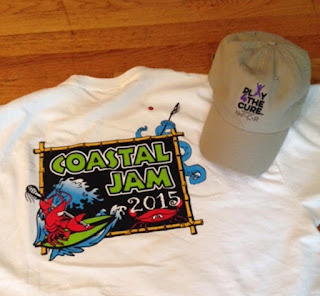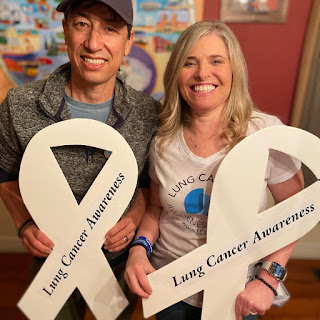Good Things Take Time
I spent Sunday in Niantic, CT at the New England Coastal
Lacrosse (NECLAX) year-end tournament, the Coastal Jam. It’s an annual event, where hundreds of youth
lacrosse athletes and their families convene for a friendly competition, and
celebrate another season of lacrosse. Play4TheCure is privileged to join the
event this year as a charity partner, working with the teams to raise money for
cancer research and shine a spotlight on the game of lacrosse. Play4TheCure
is a signature fundraising program of the National Foundation for Cancer
Research (NFCR). Through this program, young athletes use their passion for
sports to “Play4” loved ones affected by cancer. The program started as a tribute to a mother
fighting cancer and has grown to a powerful movement of tens of thousands of
student athletes, playing for the cause. Now Play4TheCure is taking hold in lacrosse programs like NECLAX.
But those of us raising money for cancer research know that,
like the research itself, good things take time to develop. Fundraising, even for important cancer
research is difficult. Basic,
exploratory research is critical – without this work, there would not be the
breakthroughs that we hear so much about.
But because it is investing in discoveries that may take time, it
requires patience, and the development of relationships between donors and the
scientific community. Likewise, it will take time for Play4TheCure to become a
tradition at the NECLAX Coastal Jam. But
we’ve learned that, over time, as the relationships get stronger, and
partnerships solidify, the results are extraordinary. In field hockey last
year, we had over 600 teams dedicate a game to Play4TheCure
Play4TheCure, like all successful fundraising programs, has
developed a passionate following of loyal donors. I asked Eli
Goldstein, Marketing Manager of Sports Events at NFCR, for his thoughts on the
growth of Play4TheCure. He believes in the importance of teaching players the
lessons of perseverance and dedication both on and off the field, and knows
that it takes time to build traditions.
He says “A Play4TheCure tradition creates a bond between players for
years by fostering a meaningful experience for each player. By making
Play4TheCure a tradition we can learn from the previous years.” He adds, “We have over 40 years of experience
to know that the key to a breakthrough is patience - to continue to support a
scientist until an idea becomes a discovery.” Good things do not just happen overnight, and
it takes years of doing things the right way in order for us to reach our
goals. The NECLAX Play4TheCure Coastal Jam can become a tradition, and these
communities will have a huge impact on cancer research.
Taking this long term view of building relationships is
really at the core of how NFCR funds amazing cancer researchers. And as I’ve written about in previous posts,
philanthropic support for cancer research is critical. It’s best to hear them
explain it in their own words. Listen to
Wayne
Marasco, M.D., Ph.D., Director of the NFCR Center for Therapeutic Antibody
Engineering at Dana-Farber Cancer Institute. His research has been funded by
the NFCR for 15 years. He says “studies
require a long term commitment to see them through to the end.” When I first met him he used the words
“continuous” and “reliable” to describe the funding he receives from NFCR. And he talks a lot about the long term
relationship he has developed with NFCR.
People who know me will hear me say this all the time – “It’s about
relationships.” I appreciate working with people who share my commitment to the
long term.

